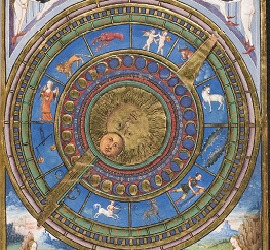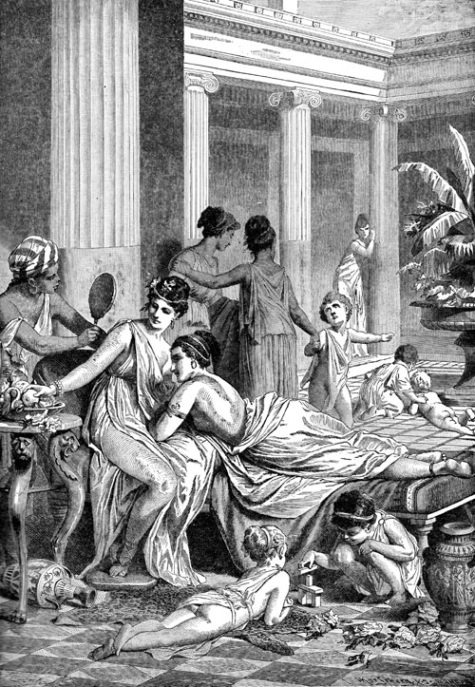#poseideon 2
Explore tagged Tumblr posts
Text

[LVL 2 GL1TCH F0UND] penelope.nm = criminalminds.src

> name
penelope, garcia, phoenix, pg, penny, pen, garcie, grace, pixel, meta, queen, ruby, sparkle, rainbow, portal, glitch, enigma, data, screen, zero, kitty
> pronouns
she / th♡y / thxy / sh♡ / they / shx / spy / byte / hack / code / bug / spam / pixel / error / chaos / meow / spider / web / cutie / silly / grem / soft / ^_^ / xD / :3
> gender
cisfem, gxrlflux, catgender, sillypupgender, sillygoofygender, goobergender, ikea alien gender, groceryhoarder, shapeshifterhoarder, hoardercollecter, gremlingender, catbeaniegender, skrunklycattic, softdemogender, comfygender, astrobatomorphlilacic, stellameowic, cutehoarder, cutefreak {...and more, really anything you can think of that slightly fits will make her happy, her gender is as colorful and confusing as sh♡ is}
> sexuality
pansexual, hypersexual
> age
chrono31, agenull
> species
human, nullhuman
> roles
reader, delight, mood booster, archivist, black sheep, social media manager, freakiness holder {i didn't know how else to word it... but you get the point}, paraphelia holder
> source
criminal minds
> faceclaim



> likes
books, exchanging books with reid, joy and whimsy, colorful everything, musicals, singing, fictional characters, fangirling, gossip, completing things, dying their hair, computers, hacking, the internet
> dislikes
party poopers, people who can't take her seriously when needed, beiges and greys, being quiet, being ignored, being used, leaving things unfinished
> front triggers
reading, fangirling, gossiping, generally sharing information, sexual topics and acts, sourcemates, computer issues, super spy activities
> cisids
adhd, autism, brown eyes, self shipper, fangirl, fujoshi, hoarder, paraphelia hoarder, hacker
> transids
siren voice, transid hoarder, nullgunshot, permafreak, permaflirt, permacolorful, permahappy, permaloved, permacute, permasexy, permababygirl, hair-color-fluid
> paras
sadomasochism, fictophilia, fictomap, teratophilia, necrophilia, erotophonophilia, autoimlaphilia, odaxelagnia, biastophilia, somnophilia, zeusophilia, plushophilia, jeuliephilia, timophilia, mastigophilia, emapihtophilia, haemotophilia, nyctophilia, pyrophilia, traumaphilia, vigiliaphilia, hybristophillia, oplophilia, hoplophilia, apagophilia, dacryphilia, masquephilia, merinthophilia, opophilia, menophilia, cratolagnia, asphyxiophilia, maniaphilia, phobophilia, sinefaciemphilia, angelophilia, demonophilia
{and... you guessed it! probably more}
> misc info
believes that both age and species are meant to put you in pre-determined boxes for how you're expected to act and how you get treated, enjoys acting immature at times but hates being treated like a child, has as much fun making sexual jokes, deeply enjoys taboo subjects, loves anything problematic, will frequently photobomb people, struggles with the correct timing to say certain things {generally social cues}, especially enjoys the way black widow females behave after mating, queen of the "x reader"s, dating apps fear her
> aesthetic



> favorite song
> favorite color
everything
> favorite book genre
"spicy" dark romance
> fictional others
♡ dean (supernatural) {specifically in the way that she is dating dean and dean is dating castiel, but she is not dating castiel, but instead watches... yk} ♡ jason todd (dc) ♡ damien wayne (dc) ♡ dick grayson (dc) ♡ poison ivy (dc) ♡ catwoman (dc) ♡ bruce wayne (dc) ♡ barry allen (dc) ♡ oliver queen (dc) ♡ odysseus (epic the musical) ♡ penelope (epic the musical) ♡ telemachus (epic the musical) ♡ poseideon (epic the musical) {specifically the way that neal illustrator draws him} ♡ circe (epic the musical) {specifically the way that gigi draws her} ♡ evan buckley (9-1-1) ♡ eddie diaz (9-1-1) ♡ inuyasha (inuyasha) ♡ nishinoya (haikyuu) ♡ bokuto (haikyuu) ♡ bakugo (mha) ♡ soap (cod 2019 ver.) ♡ zoro (one piece) ♡ ace (one piece) ♡ natsu (fairy tail) ♡ kyo (fruit basket) ♡ usui (maid sama) ♡ meliodas (seven deadly sins) ♡ soul (soul eater) ♡ venom (marvel) ♡ eddie (marvel) ♡ bucky barnes (marvel) ♡ wolverine (marvel) ♡ captain america (marvel) ♡ ironman (marvel) ♡ montgomery gator (fnaf) ♡ raphael (tmnt) ♡ yuliy (sirius the jaeger) ♡ beast boy (teen titans) ♡ keith (voltron) {again.. in the way that she's dating keith and keith is dating lance} ♡ hook (one upon a time) ♡ stiles (teen wolf) ♡ loid (spy x family) ♡ yor (spy x family) ♡ zero (vampire knight) ♡ karma (assassination classroom) ♡ tim (the rookie)
{and many, many more... especially every single fictional person she ever will read about, watch, or play with}
> fashion sense



> sillies




1 hav3n't b33n f33l1ng th3 b3st 3m0t10nally, s0 1'm g01ng t0 paus3 d01ng r3qu3sts f0r a b1t. 1 w1ll st1ll b3 d01ng p3rs0nal alt3rs t0 d3str3ss at t1m3s, s0 d0n't w0rry, 1'm n0t fully d3ad !!
{tr. i haven't been feeling the best emotionally, so i'm going to pause doing requests for a bit. i will still be doing personal alters to destress at times, so don't worry, i'm not fully dead !!}
#zerosandones.per#penelope.char#criminalminds.src#radqueer safe#transid safe#para safe#endo safe#bah#build a headmate#build an alter#baa#baa blog#bah blog#build a headmate blog#alter packs#alter creation#headmate pack#create a headmate#headmate creation
6 notes
·
View notes
Text
I have a question. I think I would like to worship Lady Hestia as my patron goddess. I feel a deep connection with her and the hearth. Heres the thing..
I grow produce, I do crafts, I work and give some of my tips to Hermes, i sing and want to do more. But i feel..scared(?) Of making any of the Gods mad at me. I dont want to piss them off by just focusing on worshipping Lady Hestia, yk. I also have always LOVED Lady Athena. I always had a strange pull to her, too.
Can I worship Just Lady Hestia for the time being? Will the Gods be pissed off at me? Also can I give her a small dolphin decoration because I got 2 for Poseideon..
(Im sorry I just dont wanna mess anything up❤️)
2 notes
·
View notes
Text

My month ahead …
☀️ Panamos (Athenian Poseideon)
… to this place came Lynceus, being the only one of the fifty brothers to escape death, and that on his escape he raised a beacon here. Now to raise the beacon was the signal he had agreed with Hypermnestra to give if he should escape Danaus and reach a place of safety. She also, they say, lighted a beacon on Larisa as a sign that she too was now out of danger …
[ 1/12 ] 1st - Noumenia
[ 2/12 ] 2nd - Agathos Daimon
[ 3/12 ] 3rd - Athena
[ 4/12] 4th - Aphrodisia, Herakles Hermes Aphrodite Eros
[ 5/12 ] 5th - Lynkeia, Epitelides
[ 6/12 ] 6th - Artemis
[ 7/12 ] 7th - Apollon
[ 8/12 ] 8th - Poseidon
[ 13/12 ] 13th - Dioskouria 1
[ 14/12 ] Zeus, 14th - Dioskouria 2
[ 16/12 ] Hera
[ 29/12 ] 29th - Hene Kai Nea
[ Argive calendar converted to southern hemisphere ]
5 notes
·
View notes
Text
"God how am I going to do this???" I groan pacing back and forth anxiously, "So... we've got.... uh.... cavemen.... uh--- roman empire falling--- all the other empires the Gods new falling... gods--- they will not be happy---" I mutter making a mental list.
"OH SHIT!!!" I yelp, "THE UNDERWORLD WILL BE A SHIT SHOW!!!!"
Hades will have his work cut out for him.... it's most definitely chaos down there, the interns usually work down there....
Gods
why did they sleep again???
Something about a bet.... no wait that was the Demi Gods....
GODS I DUNNOOO
nOt mY dIvISiON GAVIN???whatareyoudoinghere???
Sherly: "Is that why your calling yourself GREG Jawn: "That's his name!!!" Sherly: "It is????" *JAWN WHY* Gavin-- er... Gary! ERRRR Geoff????: IT IS MY NAME sorry got distracted. ANYWAYS
NOW WHAT??? THE DAM HUMANS MADE NUKES!!!! N U K E S
PLURAL
Zeus will kill us all at the Agency for FAILING
Poseideon will FREAKING destroy everything cause the oceans are dying
Demeter will have a mental breakdown cause of climate change
we are screwed
actually screwed
and here I thought the World Wars would get them riled up----
oh no
the world wars
I have to explain the
world
wars
also plural
Hades will actually have a field day over this
can't tell if it'll be good or bad....
depends on how bad the Underworld got....
god I hate interns....
OH CRAP
10
MINUTESSSS
AAAAAAAAaAAAAAAAA
*one mental break down later*
3
2
1
and they are awake.....
And I begin explaining
and they take it.... better than I thought?????
"So they can smite each others kingdoms? Is that what your saying?" Zeus asks me
"Er... sort of?" I blink, "Yes.... we will go with that for now,"
"THE FISHIES?????" Poseidon shrieks, "MY FISH?????"
he blips off
soon followed by Hades:
"yOu LeFT tHe UndErWOrlD tO thEE InTErRNS?????????"
*AFTER EXPLAINING ALL THE LOREEEEEE*
"Do they still need us?" Zeus asks.
"Yes, they do, now more than ever...." I sigh, "Please don't let them destory this planet, I've grown to attached to it,"
the end
maybe
this sucked
Your a messenger having witnessed the rise of humanity ever since the Greek Gods went into slumber. It is only an hour before they awaken. You now have to explain the entirety of the past 2000 years of humanity, including a new threat to the gods caused by these human devices called ‘Nukes.’
#bad writing#greek gods#writing prompt#greek god writing#MY FISHIESSS#the FISHIES#STUPID INTERNS#RIP HADES SANITY YALLLLLL
5K notes
·
View notes
Text
Friday the 13th is coming!

#diary#journal#2023#poseideon 2#january#january 2023#january 23#holidays#vendredi 13#friday the 13th#superstitions#superstition#folklore#witchcraft#traditional witchcraft#amethyst#flecked obsidian#obsidian#cristals#cornaline#dice#pentagram#magic#occult
26 notes
·
View notes
Text
Twitter BCE
need dick from a girl with unbalanced humors
Daylight • 2 of Poseideon, Ol.91.4 • Twitter for Ostracon
2K notes
·
View notes
Photo








greek god aes (2/2)
- zeus, king of the olympians, god of the sky, weather, thunderstorms, lightning bolts, winds and clouds.
- poseideon, god of the sea, storms, earthquakes and horses.
- hades, god of the dead and the king of the underworld.
- ares, god of courage and war.
credit : ostara
#greek pantheon#greek aesthetic#greek myth aesthetic#aestheitcs#greek gods#gods#mythology aesthetics#zeus aesthetic#poseidon aesthetic#hades aesthetic#mine: edits#mine: aesthetic#ares aesthetic
133 notes
·
View notes
Conversation
Hades: Mal, these are my 2 very annoying brothers, Sparky and Seaweed Reject.
Mal: Zeus and Poseideon?
Hades: That's what I said.
Zeus:
Poseidon:
86 notes
·
View notes
Text
Exploring Hellenic Calendars
I've seen at least two people crushing the idea that the Attic calendar (Athens) is The Ancient Greek Calendar™ because it is so pervasive in Hellenic Polytheism. Hellenion, Labrys, and Elaion, all use the Attic Calendar and most websites or blogs dedicated to Hellenic Polytheism also use this calendar and its associated festivals.
I decided to look into other calendars and started with those related to my ancestors. Through my Papous' side Lagkadas, part of historical Macedon, and through my Yaiyai's side Sparta & Kalamata, both part of historical Sparta. They were different from the Attic even from my cursory view, so let me squash the belief a bit more!!!
Attic Calendar Months Names
"... the attic year started in the month Hecatombaeon after the first new moon which followed the summer solstice (June 21)" — [1]
*month names taken from wikipedia cross referenced with the modern organizations usage
1st Hekatombaion | July/August
2nd Metageitnion | August/September
3rd Boedromion | September/October
4th Pyanepsion | October/November
5th Maimakterion | November/December
6th Poseideon | December/January
7th Gamelion | January/February
8th Anthesterion | February/March
9th Elaphebolion | March/April
10th Mounuchion | April/May
11th Thargelion | May/June
12th Skirophorion | June/July
Macedonian Calendar Month Names
"It started after the first new moon following the autumnal equinox" — [1]
1st Dios | September/October
2nd Apellaeus or Apellaios | October/November
3rd Audynaeus or Aidonaios | November/December
4th Peritius | December/January
5th Dystrus | January/February
6th Xanthicus | February/March
7th Artemisius | March/April
8th Daesius | April/May
9th Panaemus or Panemus | May/June
10th Loous | June/July
11th Gorpiaeus | July/August
12th Hyperberetaeus | August/September
Some Lacedaemonian Calendar Month Names | aka Sparta / Laconia and their possible month order.[2]
"...the lacaedaemonian year started in the autumnal equinox (September 22)" - [1]
6th Artemisios | March
7th Gerastios | April
8th Ekatombeus | May
9th Fliasios | June
10th Irasios | July
11th Karneios | August
I saw festivals as well, some of which were interesting especially the festival to Zeus during Dios. There were many more I saw while browsing but that'll take a lot of research. I simply want to show that the Attic Calendar is not "The Ancient Greek Calendar™ its simply the most complete and documented. So keep that in mind if anyone ever touts the Attic calendar as necessary to be a Hellenic Polytheist!! They're full of it.
Notes
[1] The Macedonian Calendar in Macedonia by E. Theodossiou, E. Danezis, E., Th.Grammenos, M. Stathopoulou
[2] A Dictionary of Greek and Roman Antiquities by William Smith et al. 1890; this has a ton of calendars, its very old but that still gets the point of attic =/= ancient Greece across
Greek and Roman Chronology; Calendars and Years in Classical Antiquity by Samuel, Alan Edouard 1972. I didn't really use this but the entire thing is about calendars.
PS. for those who wanted a December holiday according to source 1 "Aetolian year started in the winter solstice" 😂
#polytheism#paganism#hellenic polytheism#helpol#still love athenian noumenia idea#i got super bored apparently#calendar work
24 notes
·
View notes
Text
O ciclo mensal do culto doméstico

Tradicionalmente, o nosso calendário helênico é marcado através das movimentações de nossa Deusa Selene, a Lua. Como fala o mito, Selene é a mãe dos luares e da passagem do tempo pelo qual os antigos se guiavam. Por esta razão, ao utilizarmos um dos vários calendários antigos nos atentamos a suas fases.
A maioria dos politeístas helênicos se guia pelo sobrevivente Calendário Ático, ou seja, o calendário utilizado pela região de Atenas. E, ao longo do mês, além dos festivais sagrados para cada um dos Deuses ao longo do ano, temos datas fixas relativas à mitologia, festivais específicos e costumes presentes nos tempos antigos. Vamos dar uma olhada neles ao longo deste post.
Neste post visitaremos os Dias Fixos do calendário mensal. Em posts futuros visitaremos com mais detalhismo os festivais fixos associados a determinados dias mensais.
Antes de começarmos, entretanto, vejamos de onde vêm cada um dos meses lunares do Calendário Ático e seus nomes transliterados:
Γαμελιών – de “gamos” (casamento) - Gamelion (Dez/Jan)
Ανθεστηριών – de “anthos” (flor) - Anthesterion (Jan/Fev)
Ελαφηβολιών – de “élafos” (cervo) - Elaphebolion (Fev/Mar)
Μουνυχιών – de “mounixía” (epíteto local de Ártemis) - Mounychion (Mar/Abr)
Θαργηλιών – de “thárgilos” (oferta em grãos para Apolo) - Thargelion (Abr/Mai)
Σκιροφοριών – de “skíron” (guarda-sol ritual branco que se usava sobre os sacerdotes na procissão, já que é verão nessa época) - Skirophorion (Mai/Jun)
Εκατομβαιών – de “ekatón” (cem) - Hekatombaion (Jun/Jul)
Μεταγειτνιών – de “metá”+”gheíton” (com o vizinho, época de migração) - Metageition (Jul/Ago)
Βοηδρομιών – de “boedromó” (correr para ajudar) - Boedromion (Ago/Set)
Πθανεψιών – de “piánion” (mistura de grãos cozida e ofertada aos deuses) - Pyanepsion (Set/Out)
Μαιμακτηριών – de “maimáktis” (epíteto de Zeus como ávido e incansável) - Maimakterion (Out/Nov)
Ποσειδεών – de “Poseidón” (nome do Deus) - Poseideon (Nov/Dez), este mês se repete em Poseideon II durante o ciclo olímpico ático as vezes, indo até Dezembro/Janeiro e consequentemente alterando toda ordem acima, o que ocorreu neste ano de 2021.
Devido ao mês lunar diferir do nosso sistema de calendário comum, os meses não terão direta correspondência. O mês helênico terá em média 29-30 dias, somente Elaphebolion tendo certamente 30 dias sempre.
Tendo olhado isso, observemos os dias fixos, importantes principalmente para o culto doméstico.
1 - O primeiro dia lunar é chamado de Noumenia, significando literalmente lua nova. Marca o primeiro aparecimento de Selene depois de sua absência no fim do mês lunar anterior. É um dia dedicado ao culto de todos os imortais importantes para seu culto doméstico e priorizado em Atenas como de inestimável importância, afinal nenhum outro festival era celebrado na data. Ele é particularmente dedicado a Apollon Noumenos (Apolo da Lua Nova), além de ser particularmente adequado para o culto de todos os Imortais em um ritual festivo. É uma data propícia para encher o kathiskos (Do grego, “pequeno jarro”) com grãos, frutos e azeite, dedicando-o a Zeus Ktésios.
2 - O segundo dia lunar é consagrado ao culto do Bom Espírito/Agathos Daimon, o daimon descrito muitas vezes como guardião da prosperidade, saúde e fartura de cada casa ou indivíduo, dependendo da fonte. Ele é similar em natureza a Zeus Ktésios, o Zeus dos Bens da Casa, e a guarda sob a forma de uma serpente (um animal tradicionalmente associado a espíritos ctônicos).
3 - A terceira observância mensal é focada em Atena, se chamando Tritogeneia, relembrando seu nascimento no terceiro dia lunar do mês helênico.
4 - A quarta observância mensal é dividida entre algumas deidades. Como parte do Ermou Tetras (Os quatro de Hermes) que se presta a homenagear os quatro dons que o Deus deu à humanidade: Agon, o conflito; Logos, o discurso; A escala musical e a geometria. E como parte do mesmo dia ainda temos Tetrasdistai, onde há a homenagem de Afrodite e Eros, com libações e oferendas.
5 (15, 25) - Todo quinto dia do ciclo lunar Helênico é dedicado às Erínias (chamadas de modo eufemístico como “As Benevolentes”), pois as Deusas da punição foram parteiras do daimon guardião dos juramentos, Horkos, filho de Éris, Deusa do conflito. É dito que este é um dia ctônico por excelência. Já os pitagóricos associam o número 5 à Dike, a Justiça. Pouco auspicioso para descumprir juramentos neste dia de todo modo, portanto, esteja atento.
6 - É dito que Ártemis nasceu no sexto dia do mês lunar e auxiliou a mãe Leto, Deusa do recato e maternidade, no nascimento de seu irmão gêmeo Apolo, que nasceu no dia seguinte, dedicado a Ele. Dedique este dia para a Caçadora, honre o mundo natural e selvagem, cuide de alguma jovem moça.
7 - Nascido no sétimo dia do ciclo lunar, Apolo é honrado e associado ao número sete desde então. Também é sagrado a Hermafrodito, a Deidade andrógina, criança de Hermes e Afrodite. Os atenienses tomavam este dia como apolíneo em natureza, dedique ações em nome deste Deus - cuide da saúde, use dourado, pratique ou procure adivinhação.
8 - O oitavo dia é dedicado a Poseidon, por sua associação numerológica pitagórica vendo-o similar em natureza sólida e imutável do Mantenedor da Terra. O dia também é dedicado a Teseu, o herói a quem é atribuído por muitos dos cultos dos Deuses, incluindo alguns festivais, dizem que ele chegou a Atenas no oitavo dia. Ele também é descrito como filho de Poseidon em algumas versões.
9 - Hesíodo descreve este dia como auspicioso para todas as atividades humanas, assim como sendo apropriado cultuar às Nove Musas ou algum outro Deus.
15 - É dito que a celebração da Dikhomenia ocorre geralmente entre os dias 14 ou 15 do ciclo lunar. Ela é dedicada à Deusa Selene, a Lua. É uma época de grande poder para qualquer ritual, assim como para as Erínias ao qual o número cinco é associado. O nome Dikhomenia supostamente vem de Dikhiazo “Eu parto em dois” e Mene “Lua”, outro nome para Selene. É pensado que ele marca a metade do mês helênico. Entretanto, suas fontes históricas são de qualidade discutível, fazendo da data algo mais como revisionismo histórico do que um ritual antigo reconstruído, a associação do quinto dia com as Erínias, entretanto, é atestada por Hesíodo.
17 - Descrito por Hesíodo como propício para Deméter, Deusa das estações e agricultura.
18/19 - Dias purificatórios descritos por Hesíodo, propício para rituais apotropaicos e de purificação.
29/30 - Neste dia é celebrado o Deipnon (Do grego, “banquete”), um ritual purificatório onde é oferecido à Hécate alho, queijos, ovos, pão. De natureza ctônica, o rito visa apaziguar os mortos irrequietos e também expiar quaisquer malefícios cometidos, pedindo para que a Deusa leve o que já não serve com o mês que se esvai. É uma boa data para esvaziar o kathiskos dedicado a Zeus Ktésios. O mês helênico encerra-se aqui, na Lua Negra depois do ciclo minguante, para então ser retomado na Noumenia com a Lua Nova.
Há outras associações para cada dia helênico que podem ser explorados nas fontes como Hesíodo - Trabalhos e Dias e Scholia Erga, mas acredito que estes vão lhe servir para a maior parte dos meses e lhes dar uma básica noção do ciclo de culto geral que procuramos manter na prática helênica. Alguns grupos helênicos compilam seus próprios calendários, o do Helenos se enconra aqui para referência. O da Episteme Academy tambbém é bastante certeiro.
Espero que achem este post útil! Eirene! (Paz!)
102 notes
·
View notes
Text
i maintain that jaehwan trying to pull off leo’s poseideon costume on camera shouldve gotten him put in jail. 2 nights for him. hyuk gets 12 hrs of community service for being like ‘omg leo was nekkid under there’ nd hakyeon gets a week of sensitivity training for watching with a smile on his face
3 notes
·
View notes
Note
Athena and Poseidon?
Athena, share a piece of wisdom: Don’t let people ruin things for you. Not everyone is gonna be as excited as you are about the Thing that brings you joy, but don’t ever let them ruin it for you. Like. Love your Thing. Love it fully and holy, and don’t let peoples crappy views taint it for you. That’s my advice.
Poseideon, list three fears: 1, becoming an alcoholic; 2, butterflies; 3, boats.
2 notes
·
View notes
Text
tagged by @tonxnymphadora , thanks love! ☾
1. go apple picking vs. go on a hay ride
2. scary vs. sweet
3. sweaters vs. boots
4. socks vs. mittens
5. bonfires vs. football
6. trick-or-treating vs. watch scary movies
7. bake pie vs. bake cookies
8. rain vs. fog
9. black cats vs. owls
10. ghosts vs. wizards
11. harry potter vs. halloweentown
12. go hiking vs. sleep in
13. cinnamon vs. nutmeg
14. reading vs. writing
15. hot chocolate vs. tea
16. live in a cabin in a forest vs. have it be fall 24/7
17. candy apples vs. caramel apples
18. blankets vs. pillows
19. roasted marshmallows vs. roasted chestnuts
20. coffee vs. apple cider
21. red leaves vs. orange leaves
22. braids vs. bows
23. scented candles vs. the smell of fresh baked goods
24. carve pumpkins vs. make pumpkin pie
25. pumpkin spice lattes vs. chai lattes
26. coats vs. oversized sweaters
27. beanies vs. berets
28. candy corn vs. peanut butter cups
29. s’mores vs. apple crisp
30. jump in a pile of leaves vs. swing on a tire
31. corn maze vs. haunted house
32. bob for apples vs. visit a pumpkin patch
33. whipped cream on hot chocolate vs. marshmallows on hot chocolate
tagging: @harperslee @larajeankavinski @nemnesis @poseideons @ninazenix @olilverwood
7 notes
·
View notes
Text
Poseidonia of Aegina

By shirleytwofeathers
In Athens and other parts of ancient Greece, there is a month that corresponds to roughly December/January that is named Poseideon for the sea-god Poseidon. The Poseidonia of Aegina may have taken place in the same month. Presumably on or around the Winter Solstice.
There were 16 days of feasting with rites of Aphrodite concluding the festival. Like the Roman festival of Saturnalia, the Poseidonia became so popular it was extended so that Athenaeus makes it 2 months long.
Poseidon as savior of ships, protector of those who voyage in ships, and God of the lapping waters both salt and fresh important for agriculture, is thanked for the many gifts that came from faraway places that were likely given at that time. The immense trade and distribution was nearly all through shipping, relatively little overland, whether it be perfume from Cyprus or pottery from Corinth.
It is interesting today that Agios Nikolaos (Saint Nikolas) is the Patron Saint of seafarers in the Orthodox Church. Celebrating Poseidon’s Festival seems to be lost in modern practice. It likely entailed bonfires, feasting, cutting of trees (probably decorated), and very likely gift giving. As God of begetting, that aspect was not forgotten.
The most complete account of the festival is Noel Robertson’s article Poseidon’s Festival at the Winter Solstice, The Classical Quarterly, New Series, Vol. 34, No. 1. (1984), pp. 1-16:
“The record shows that Poseidon was once worshiped in every part of Greece as a god of general importance to the community.”
“The festival falls near the winter solstice, and the ritual business marked by jollity and license, belongs to the general type of solstice festival known the world over. At Poseidon’s festival, however, the sportive conduct has a definite purpose; this purpose arises from the fundamental agrarian background if Mediterranean society, and may bring us close to the origin of solstice festivals.”
“It has scarcely been noticed that festivals of Poseidon, more than those of any other Greek deity, fall at just this time of year; yet the evidence is extensive.”
“The festival Poseidea and some of the rites in question are often claimed for Poseidon the sea-god, but at this season sailing is furthest from one’s mind, and fishing on the shore is by no means an overriding concern. Such details as we have point elsewhere, to Poseidon as the god of fresh water who fructifies Demeter’s fields.”
One of Poseidon’s epithets is prosklystios, ‘of the lapping water’. He is also invoked as Poseidon phytalmios which implies natural fertility and human procreation. There are also implications in the legends that imply bonfires at the winter solstice.
Noel Robertson concludes:
“…the celebrants feast to satiety, then turn to lascivious teasing. What is the ritual purpose of such conduct? It obviously suits Poseidon’s mythical reputation as the most lustful of gods, who far surpasses Apollo and Zeus in the number of his liaisons and his offspring. Poseidon the seducer is the god of springs and rivers; his women typically succumb while bathing or drawing water; the type of the river god is a rampant bull. But the ritual likewise treats Poseidon as a procreant force; witness the epithets phytalmios, genesios, pater, etc. as interpreted above. The myths and the ritual reflect the same belief. The rushing waters are a proponent male power, just as the fields which they fertilize are a prolific female. Both water and the fields, both Poseidon and Demeter, can be made to operate by sympathetic magic. The rites of our winter festival rouse Poseidon and bring the rushing waters…”
It is interesting that that Theophrastus tells us that the silver fir was important in ship building, especially for masts. The ‘tannenbaum’ is a silver fir. It is also interesting to compare with the Roman Saturnalia which may very well have borrowed from the Poseidea.
https://shirleytwofeathers.com/The_Blog/pagancalendar/category/christmas-celebrations/page/3/
1 note
·
View note
Text
Kemetic polytheists should absolutely play Assassins Creed Origins! The temple of Zeus Serapis in Alexandria (there are greek gods too) and Sekhmet are a-ma-zing. And the landscapes are.. 🫠It gives an idea of what these beautiful cities looked like.
You can almost feel the sun on your skin and oh- there is a lesbian love story inside, and a message pro-diversity when you start playing 🪷
Can't wait to buy Odyssey!

#diary#journal#poseideon 2#january 2023#kemetic polytheism#assassin's creed#apollon#apollo#god apollo#greek gods#holidays
3 notes
·
View notes